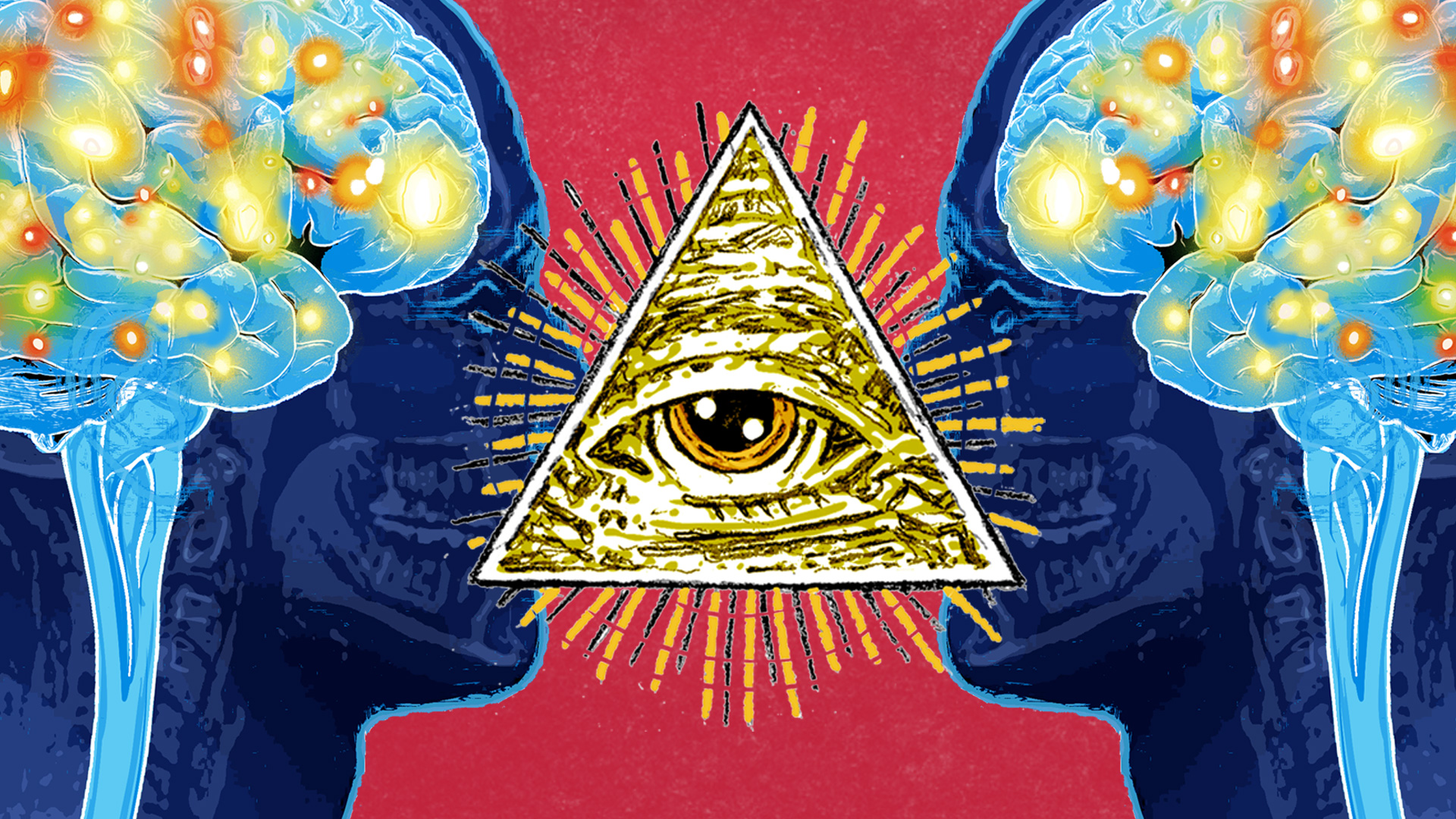The human mind can be a fallible thing. When people are in crisis it’s very easy to forget about things like confirmation bias, where we’re more likely to believe new information if it confirms our existing beliefs. A lot of people are going quite far down a rabbit hole at the moment with conspiracy theories, which is a bit scary.
Why? It’s about power, feeling like you’re on the inside of something. But also it can be comforting to feel that there’s someone in control, even if that someone is a big, scary evil creature. Our survival as a species depends on our ability to recognise patterns and it has given us an advantage over creatures that couldn’t do that as willingly.
But this also makes us vulnerable. Things like the frequency illusion, for example. If I show you 100 rumours about someone and you know, intellectually, that every single one of the rumours is completely false, you will still feel more negatively about the person because you’ve seen so many rumours.
So we have these inbuilt cognitive biases which can be exploited in a very real way. We’re now seeing the weaponising of cognitive bias, especially in democratic countries where the payoff for manipulating the populace is so huge. In America, the right has been weaponising conspiracy theories to motivate people to follow a particular candidate.
No matter how strange a belief system seems to be to those on the outside, it’s always rational to the person on the inside. We’re always the hero of our own story and the human brain has a tremendous ability to justify and self-rationalise. Remember, our brains are the single most complex system that we have ever discovered.
Find out more about The Big Issue vendors, their stories and skills on our Vendor page.









